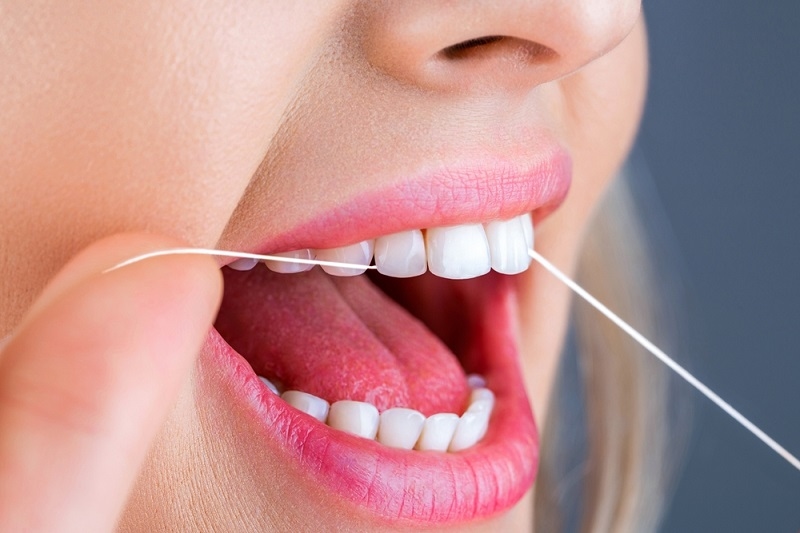
A bright smile is a combination of brushing and, equally important, flossing. Once you understand the need for flossing, you notice that brushing does not remove all food particles or plaque from your mouth entirely. Dentists recommend flossing at least once daily because floss can clean the tight areas between your teeth that bacteria love to hide in. Flossing is essential for cavity prevention, gum disease, and bad breath. If you floss daily and use the correct technique, you are giving your teeth the love they deserve and truly understanding the importance of flossing for lifelong oral health.
Brushing removes surface debris but is generally ineffective at cleaning between teeth. That's where flossing is essential. The value of flossing lies in its ability to clean well those hard-to-reach areas where plaque builds up and can turn into tartar.
When you appreciate the benefits of flossing, you have made the best choice for improving and protecting your smile and overall health!
The benefits of flossing include not only clean teeth. Research has shown that flossing can support gum health and may even improve systemic health. Your gums are responsible for protecting the underlying structures of your teeth. When you floss each day, you are helping to reduce your risk for infections that can enter your bloodstream, travel throughout your body, and affect your general health.
When you understand why flossing is essential, you will be more committed to doing it every day as part of your daily oral care routine.
Dental floss helps fill the gaps left by brushing. Bristles from a toothbrush often do not reach into tighter spaces, such as near the gumline. This is when dental floss will become your best friend.
How it works:
By incorporating dental floss into your routine, you can maximize your oral cleanliness and the benefits of flossing that brushing alone cannot provide.
To receive the full benefits of flossing, it is essential to floss correctly. Improper flossing can irritate your gums and/or potentially make the process less effective.
Practicing correct flossing is not only beneficial for your oral hygiene but also helps reduce gum irritation; therefore, you can enjoy daily flossing for good hygiene without irritation to your gum tissue.

If you're curious about why flossing is essential, it comes down to one thing: maintaining a routine is the key to achieving long-term benefits. Flossing each day prevents food particles and bacteria from becoming trapped between your teeth, keeping your mouth clean and fresh.
When you commit to flossing daily, you are helping to preserve your smile and your long-term dental health.
Even when practicing good oral hygiene habits, common mistakes can reduce the effectiveness of flossing. Understanding these flossing no-nos will help maintain the health of not only your teeth but also your gums and overall mouth health.
If you can avoid these mistakes, you will be able to reap the benefits of flossing without harming your gums or teeth.
Having healthy gums is just as important as having healthy teeth, and flossing is a crucial part of maintaining that balance. The importance of flossing becomes apparent when you understand that plaque buildup at the gumline causes inflammation, bleeding, and sometimes even gum recession.
What flossing does for your gums:
Flossing regularly not only improves the appearance of your gums but also increases the longevity of your teeth.
There are many types of floss offered on the market, and while some types may be superior to others, the right kind of floss can enhance your flossing experience as well as your results. Each type will have its advantages, depending on the needs of your mouth and your preferences.
When you find the right floss for you, you will maximize the benefits of flossing and be comfortable while doing it. Being comfortable with it will make the daily habit of flossing much easier.
Many people do not understand the importance of flossing after brushing their teeth. However, flossing will always be a necessity for maintaining optimal oral hygiene. Your teeth change as you age—spaces get larger, gums recede, and plaque builds up much quicker. Because of this, flossing is key at every stage in your life.
If you start this habit early, you will learn to appreciate it later in life when you want to avoid cavities, bad breath, and periodontal disease. The importance of flossing remains as you consider how a simple, daily habit can help maintain the health and brightness of your smile.
Flossing is a small action with significant rewards. By understanding the benefits of flossing, refining your flossing technique, and making it a daily habit, you can maintain stronger teeth and healthier gums for life. The importance of flossing lies in its simplicity—it’s your best defense against decay, gum disease, and future dental problems.
This content was created by AI